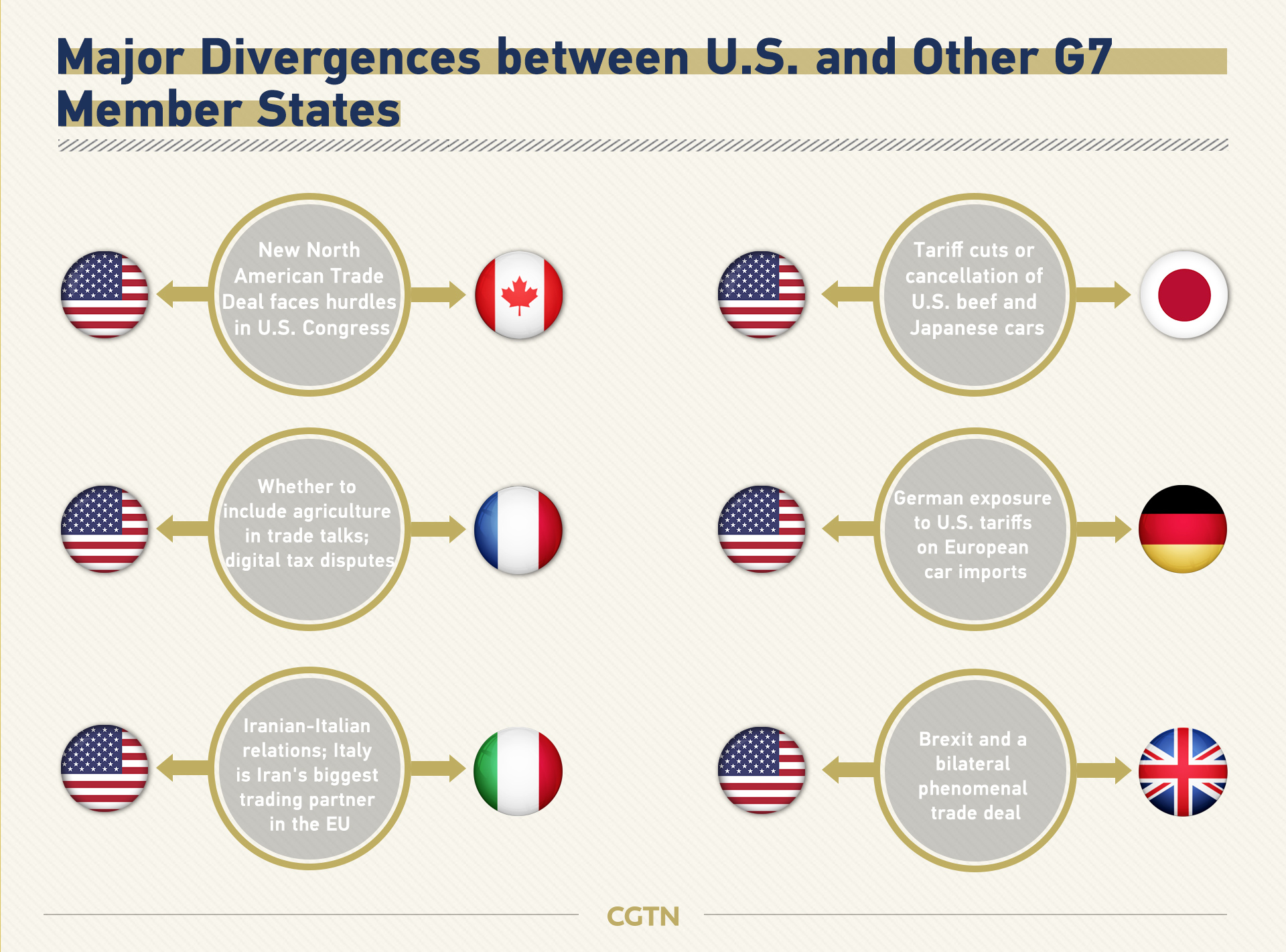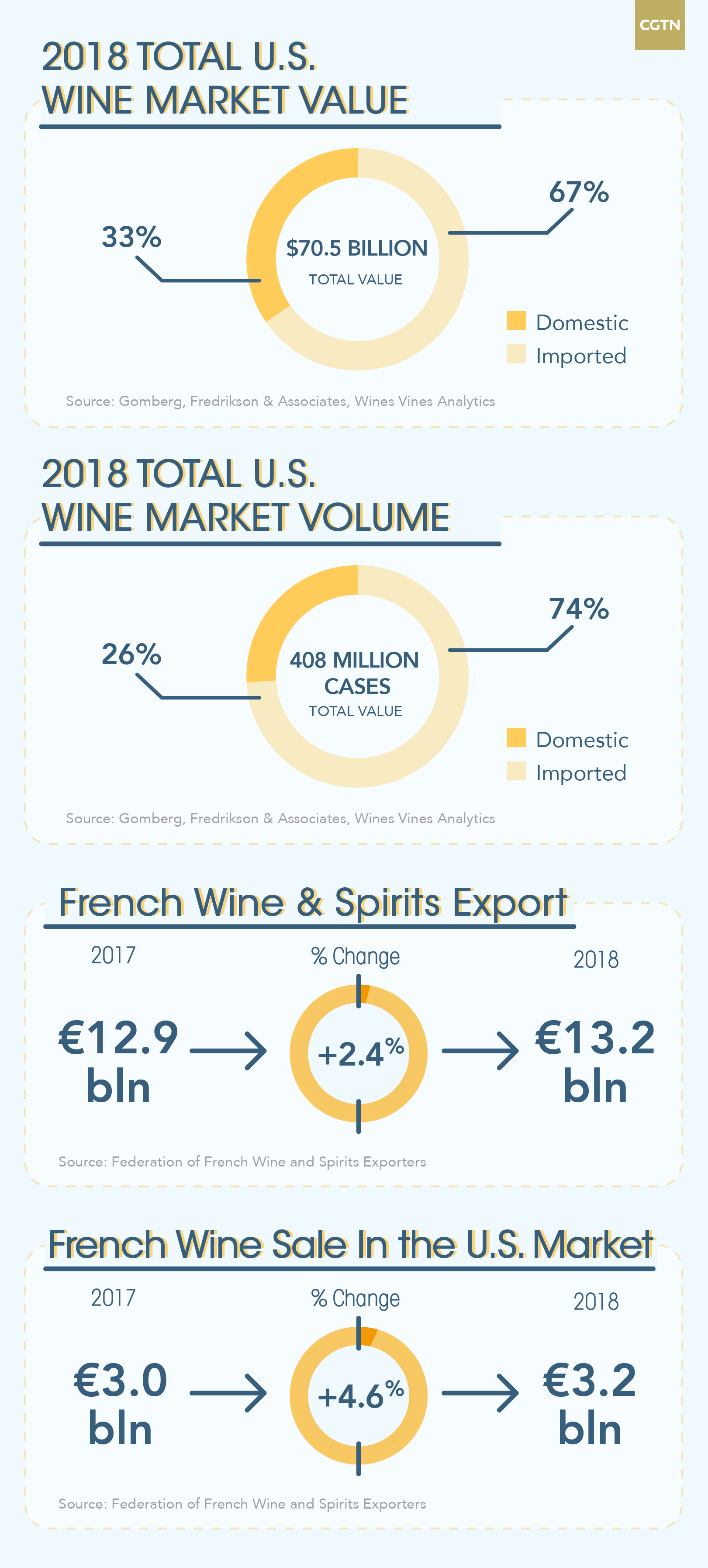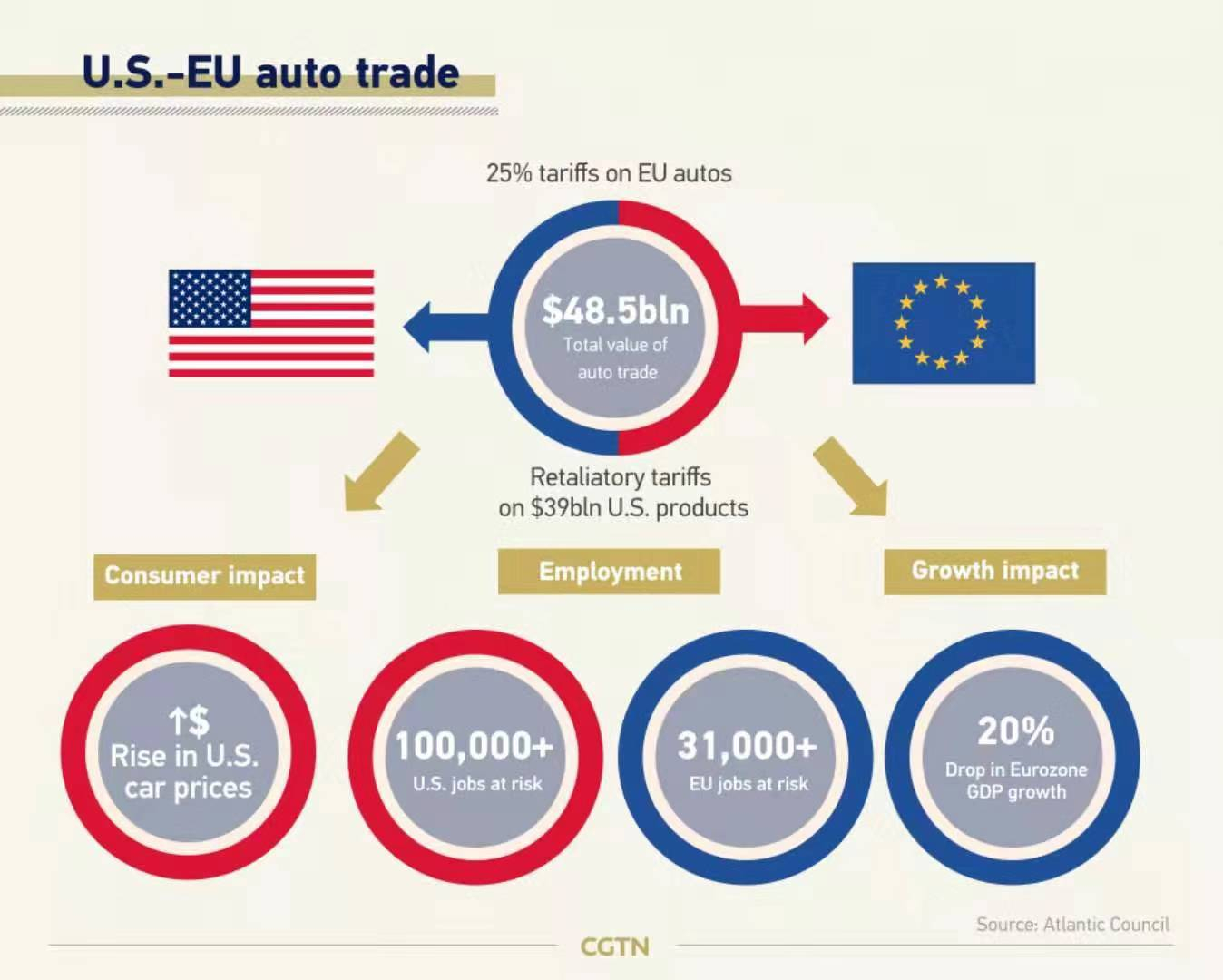

The French town of Biarritz, a place with Atlantic waves and gleaming white beaches, is gearing up to host the annual G7 summit from August 24-26. Leaders of the G7 international bloc will gather here to discuss a wide range of trade issues.
U.S. President Donald Trump has recently been at odds with all the other six G7 member states on a long list of issues from the likes of Brexit, digital tax, auto tariffs, and Iran.
Experts generally hold that divergence over tricky trade and security issues will make G7 leaders' smiles for the group photo untrustworthy and less real, indicating a bitter ending may be just around the corner.

Deepening divisions
Trump suggested a 100 percent tariff on French wine will be in place to retaliate for his French counterpart Emmanuel Macron's three-percent digital tax on tech giants, most of which are U.S. based.
"I've always liked American wines better than French wines, even though I don't drink wine," the president said in an interview, complaining that it's too hard for American wine producers to sell in France.

A possible trade war could be ahead for the U.S. and the EU that have widened threats to impose tit-for-tat tariffs over airline subsidies. They are also at a stalemate due to divergence whether agriculture should be included in any agreement.
"Auto tariffs are never off the table," Trump said on August 2, blasting the EU for its trade barriers and installed negotiations. Sabine Weyand, the European Commission’s director general of trade, responded that Brussels would not be bullied by the threat of car tariffs.
Besides, France has made clear that it will not back up the new trade talks between the EU and U.S. These two economies constitute some 1.1 trillion U.S. dollars per year in international trade.
According to the German Association of the Automotive Industry, 750,000 luxury cars were produced by German companies at their U.S. plants last year, 44 percent of which were sold locally.
In 2018, German vehicles and components maker generated 27.2 billion euros' (31 billion U.S. dollars) from the U.S. market, the largest export destination.

Though little headway has been made in separate trade talks with the EU, the U.S. is approaching the "final stage" of talks on a bilateral trade deal with Japan, which would open up the latter's politically sensitive agriculture sector while curbing its U.S.-bound auto exports.
Washington seeks early opening of Japan's agriculture sector, including reductions in 38.5 percent tariffs on U.S. beef imports, while Japan calls for abolition of U.S. tariffs on Japan's industrial goods such as car parts, according to Reuters.
Even the new North American Trade Deal between the United States, Canada and Mexico faces hurdles in U.S. Congress.
Will Trump blow up the G7 summit again?
One of the major problems looming over the incoming G7 Summit is that whether President Donald Trump will blow it again, just like the 2018 Canadian Summit.
The U.S. president does have a reason to tout the strength of the U.S. economy at the summit, especially when economic headwinds are sweeping through the EU.
Stephen Collinson, a reporter for CNN, believed Trump has a strong political interest in helping to shake Europe out of its economic malaise, given fears that a follow-on effect could tip the U.S. economy – his potential passport to a second term.

Copyright © 2018 CGTN. Beijing ICP prepared NO.16065310-3
Copyright © 2018 CGTN. Beijing ICP prepared NO.16065310-3